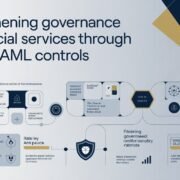Did you know that nearly half a million tonsillectomies are performed annually in the UK? Removing the tonsils can significantly relieve recurring infections and other related problems for many. However, understanding the costs involved is essential before deciding to undergo surgery. Whether you’re considering tonsil removal due to frequent tonsillitis or exploring how to cure tonsillitis without antibiotics, here’s what you need to know about the tonsil removal surgery cost in the UK and other important factors to consider.
Why Consider a Tonsillectomy?
Tonsillectomy, the surgical removal of the tonsils, is often recommended for those suffering from:
- Recurring Tonsillitis: Frequent infections that do not respond well to other treatments, such as antibiotics.
- Chronic Sore Throat: Persistent throat pain that impacts daily life.
- Obstructive Sleep Apnoea: Enlarged tonsils can block the airway, causing sleep disturbances and health issues.
Understanding the reasons for a tonsillectomy can help you decide whether surgery is the right option for you or your child.
Tonsil Removal Surgery Cost in the UK
The cost of a tonsillectomy in the UK can vary depending on several factors:
- Private vs. NHS: While the NHS may cover the cost of surgery for medical reasons, many choose private care for quicker access and a broader range of options. Private tonsillectomy costs can range from £2,000 to £4,000 or more, depending on the hospital and surgeon.
- Consultation Fees: Depending on the provider, initial consultations with a specialist may cost between £100 and £ 250.
- Hospital and Anesthesia Fees: Additional costs may include hospital facilities and anesthesia, adding another £1,000 to £2,000 to the total bill.
It is important to discuss these costs upfront with your healthcare provider to understand what is included and what may incur extra charges.
Factors Affecting Tonsillectomy Costs
Several factors can influence the total cost of a tonsillectomy:
- Surgeon’s Expertise: More experienced surgeons or those specializing in ENT (Ear, Nose, and Throat) may charge higher fees.
- Type of Surgery: The cost can be affected by the complexity of the surgery, such as using newer techniques like laser tonsillectomy.
- Post-Operative Care: Follow-up appointments and additional care needed during recovery can add to the overall cost.
Knowing these factors helps you prepare financially and ensures there are no surprises down the line.
Tonsillectomy Recovery in Adults
Recovery after a tonsillectomy can vary, especially in adults:
- Initial Recovery Period: Most adults need 1 to 2 weeks off work to recover, as the first week often involves significant pain and discomfort.
- Pain Management: Pain relief medication is often necessary to manage discomfort during recovery.
- Diet and Hydration: A soft diet and plenty of fluids are recommended to aid healing and avoid irritation.
Understanding the tonsillectomy recovery process in adults and the associated needs helps in planning for time off and managing the cost of post-operative care.
Alternative Treatments: How to Cure Tonsillitis Without Antibiotics
For those hesitant about surgery, exploring non-surgical treatments for tonsillitis might be an option:
- Home Remedies: Gargling with salt water, staying hydrated, and using throat lozenges can help manage mild cases.
- Natural Remedies: Herbal teas, honey, and essential oils may provide relief for some people.
- Avoiding Triggers: Staying away from irritants like smoke and allergens can help reduce symptoms.
While these methods may help with mild cases, they may not be sufficient for severe or chronic tonsillitis, where surgery could be the best option.
Risks and Considerations of Tonsillectomy
Like any surgery, a tonsillectomy carries potential risks:
- Infection: As with any surgical procedure, there is a risk of infection, which can be minimized with proper post-operative care.
- Bleeding: Some patients may experience bleeding during or after surgery, requiring additional treatment.
- Anesthesia Risks: Anesthesia, particularly general anesthesia, carries risks, especially for those with underlying health conditions.
Discuss these risks with your surgeon to ensure you are fully informed before surgery.
Choosing the Right Provider
Selecting the right provider is key to a successful outcome:
- Experience and Qualifications: Look for a surgeon with extensive experience in ENT surgeries and a good reputation.
- Facilities and Support: Consider hospitals or clinics with comprehensive post-operative support and emergency facilities.
- Patient Reviews and Testimonials: Reading reviews and testimonials can provide insights into the experiences of others who have undergone the same procedure.
Choosing a reputable provider ensures quality care and better outcomes.
Conclusion
Knowing what to expect is important whether you’re weighing the options of surgery versus non-surgical treatments. For a bespoke ENT Specialist in London for adults and children, consider consulting a specialized provider who can offer comprehensive care and guidance tailored to your needs. They can help you navigate the process and provide detailed information on surgical and non-surgical options to improve your quality of life.













